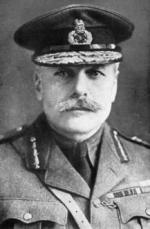Disable ads!
Douglas Haig
Field Marshal Douglas Haig, 1st Earl Haig, KT, GCB, OM, GCVO, KCIE, ADC (19 June 1861 – 29 January 1928) was a British senior officer during the First World War. He commanded the British Expeditionary Force (BEF) from 1915 to the end of the war. He was commander during the Battle of the Somme, the battle with one of the highest casualties in British military history, the Third Battle of Ypres and the Hundred Days Offensive, which led to the armistice in 1918. Although he had gained a reputation during the immediate post-war years, with his funeral becoming a day of national mourning, Haig has since the 1960s become an object of criticism for his leadership during the First World War. Biographer J. P. Harris says he would have let the Germans win. Military History magazine in 2007 called him, "World War I's Worst General." Called "Butcher Haig" for the two million British casualties under his command, he became the model of class-based incompetent commanders unable to grasp modern tactics and technology. The Canadian War Museum comments, " His epic but costly offensives at the Somme (1916) and Passchendaele (1917) have become nearly synonymous with the carnage and futility of First World War battles." Major-General Sir John Davidson, one of Haig's biographers, praised Haig's leadership and since the 1980s some historians have argued that the public hatred in which Haig's name had come to be held, failed to recognise the adoption of new tactics and technologies by forces under his command, the important role played by British forces in the Allied victory of 1918 and that high casualties were a consequence of the tactical and strategic realities of the time.
 Read more on wikipedia.org Read more on wikipedia.org
 All quotes by Douglas Haig All quotes by Douglas Haig
 Edit Edit
|

|
|
|
|
|
Background photo by Giuliana
|